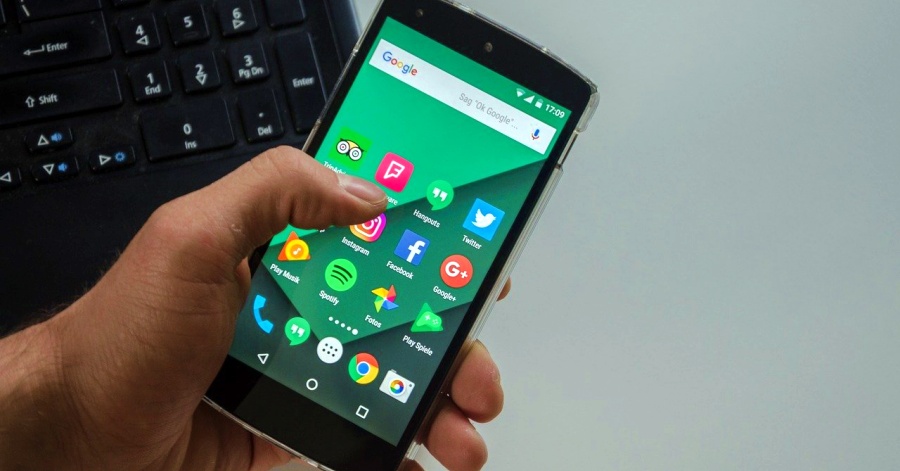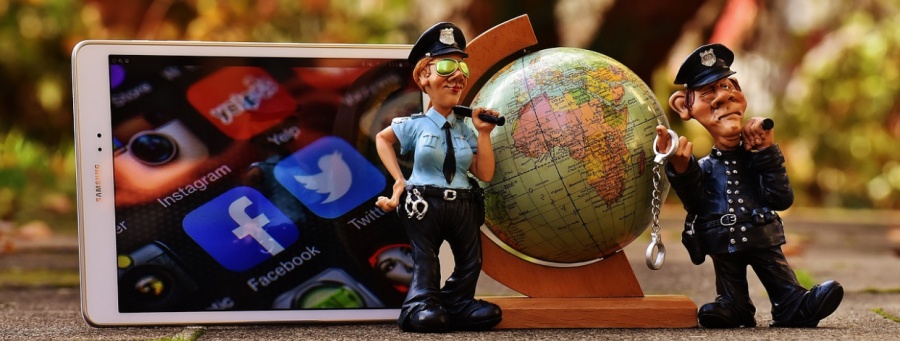Nowadays, social media has become a major part of our daily lives. It helps to keep us informed about the latest news and trends, while enabling us to stay in touch with one another. This is especially important for overseas workers, who live far away from their families and friends.
ALSO READ: 9 Tips to Avoid Homesickness While Working Abroad
In addition, social media has become a sounding board for our thoughts, experiences, and opinions. With just the click of a button, anyone can share details, images, audios, and videos about anything! For the same reason, some people tend to abuse social media — using it to deceive instead of to educate, to victimize rather than to help others. And if we are not careful, a simple social media post could land us in serious legal trouble… wherever we may be in the world!
Tips for Using Social Media as an Overseas Worker
If you are an overseas worker, always be mindful of what you are posting online. What may be considered as “okay” in your home country may be deemed us unacceptable, offensive, or even illegal in another country. Keep in mind that some countries have certain rules and regulations, particularly when it comes to the using the Internet, social media, and “cyber crime.”
What exactly is cyber crime? It is a crime committed using the Internet, social media, and other digital means. Some activities, like hacking, are obviously a crime, but there are other actions that may seem “harmless” but are actually considered as cyber crime in certain countries.
To address such activities, some countries have issued cyber crime laws, identifying criminal actions that are done online and their corresponding penalties. Below is a list of some general rules and regulations that overseas workers should be aware of when using the Internet and social media:
1. Do not post people’s pictures and videos without permission.
Taking pictures of other people — like strangers strolling in the park, for example — may be okay in your home country, but this is not always the case abroad. Always ask for permission before capturing a photo or video; otherwise, you might find yourself in serious legal trouble!
In Qatar, for example, posting another person’s pictures online without his or her consent could lead to a fine amounting to QAR 100,000 fine and prison term of 3 years. Likewise, the Cyber Crimes Law of the United Arab Emirates (UAE) states that anyone who takes other people’s photos without permission shall be fined not less than AED 150,000 and jailed for at least 6 months.
Similarly, in the Kingdom of Saudi Arabia, taking an unauthorized picture or video could lead to a fine not exceeding SAR 500,000 and a jail term not exceeding one year. These are serious offenses!
2. Do not share people’s private details without permission.
Sharing confidential information about a person, a company, or an employer is considered as cyber crime. In the UAE, this action could lead to temporary imprisonment and a fine not less than AED 250,000 and not exceeding AED 1.5 million. So be careful when sharing information about others!
3. Do not spread gossip or rumours about another person.
Engaging in gossip may seem like a trivial matter, but this is actually frowned upon in certain countries, especially if there is an intention to insult or to defame another person through social media. In the UAE, for instance, this action could lead to a fine of AED 250,000 and a jail term of 6 months.
Similarly, Saudi Arabia’s Anti-Cybercrime Law states that defamation by social media corresponds to a fine not exceeding SAR 500,000 and a jail term not exceeding one year.
4. Do not bully, blackmail, or threaten another person online.
The “anonymity” offered by social media may tempt people to bully, insult, or harass another person, but take note that some countries consider this a crime, alongside blackmail or threats.
In Saudi Arabia, for example, going online to threaten or blackmail a person could lead to a fine not exceeding SAR 500,000 and a jail term not exceeding one year.
In Qatar, cyber bullying or threatening another person online corresponds to a jail term of 3 years and a fine of QAR 100,000.
5. Do not spread false news or information.
No good can ever come out of spreading false news or information, particularly when it involves issues concerning safety, public order, and international peace. In Qatar, spreading false information about such matters could lead to a fine of QAR 500,000 and a jail term of 3 years.
6. Do not post content that is offensive to religion and values.
Posting offensive words or images about a country’s religion, morals, and values is a serious matter, especially in Muslim countries. In the UAE, for example, posting photos showing nudity and drunkenness is a serious offense against Islamic morals and values. Anyone who posts such images could face imprisonment and a fine not less than AED 250,000 and not exceeding AED 500,000.
If you are not sure whether the words or pictures you plan to share is offensive, it is always a good idea to ask a friend or a colleague for help. Better yet, be sure to read and learn about your host country’s religion, culture, and traditions so that you can be aware of the dos’ and don’ts.
7. Do not post content promoting hatred, racism, and terrorism.
It is common knowledge that there are groups whose aim is to incite hatred or spur people to commit acts of racism and terrorism. In the UAE, posting content that promote racism, hatred, and riots against national unity is a serious offense, leading to temporary imprisonment and a fine of AED 500,000 up to AED 1 million.
So make sure that you avoid websites and pages promoting such content, otherwise you could be accused of going against your host country!
8. Do not post content that is damaging to the country’s leaders.
In some countries, posting criticism about government and state leaders may be acceptable, or even encouraged. However, this is not always the case in other countries, where posting such content is seen as a criminal offence.
As an example, posting content that is damaging to the reputation of the President, Vice-President, and Emirates Rulers in the UAE is considered a serious crime — an act that could lead to temporary imprisonment and a fine of AED 1 million.
9. Do not ask for donations without getting legal permission.
Collecting donations for the purpose of charity and other causes may be done freely in some countries, but this is actually regulated by others. In the UAE, for instance, you need to apply for a license before collecting any donations.
Otherwise, you could face imprisonment and a fine of AED 200,000 up to AED 500,000. So before you start a charity drive and begin asking for donations — in cash or kind — find out if your host country has rules and regulations pertaining to such activities.
10. Do not hack another person’s social media account.
Hacking is the act of accessing another person’s account — or a computer system — without permission. We’ve all heard of cases where a person is unable to access his or her social media account, resulting in identity theft and other related crimes.
There have also been cases of government sites shutting down because of unauthorized use or access. In Saudi Arabia, hacking could lead to a fine not exceeding SAR 300,000 and a jail term not exceeding 4 years.
11. Do not post or share pornography.
Posting or sharing pornographic material online is a crime in many countries. The UAE’s Cyber Crimes Law states that anyone who uses the Internet for “lewdness or prostitution” could face a fine of AED 250,000 up to AED 1 million.
In Qatar, posting pornographic material could lead to a 5-year jail term and a QAR 500,000 fine. In Saudi Arabia, the same crime corresponds to spending 5 years in jail and paying a fine not exceeding SAR 3 million. So beware!
12. Do not promote the use or distribution of illegal drugs.
Using and distributing illegal drugs are already serious crimes, but promoting them online also counts as a criminal offense. In Saudi Arabia, anyone who uses social media to promote or facilitate the use or distribution of illegal drugs could face a fine not exceeding SAR 3 million and a jail term not exceeding 5 years. Similar laws with regard to illegal drugs are in place in other countries.
Summary
As you can see, some cyber crimes are quite obvious — hacking, publishing pornographic material, promoting the use of illegal drugs, etc. On the other hand, other crimes may seem “harmless,” like posting people’s pictures, spreading “light” gossip, sharing critical opinion about a country and its leaders, and so on. These actions may not be a big deal in your home country, but keep in mind that it could be a serious matter in the country where you are working in!
If you are not sure whether what you’re about to share is offensive or may be considered a crime, do not hesitate to ask your friends and colleagues. Take time to learn about your host country’s laws, including cyber crime laws. Finally, before posting anything on social media — be it words images, or videos — always “think before you click,” so you can avoid any trouble!
READ NEXT: DFA Warns Filipinos Abroad to Stop Posting Unverified Info on Social Media

